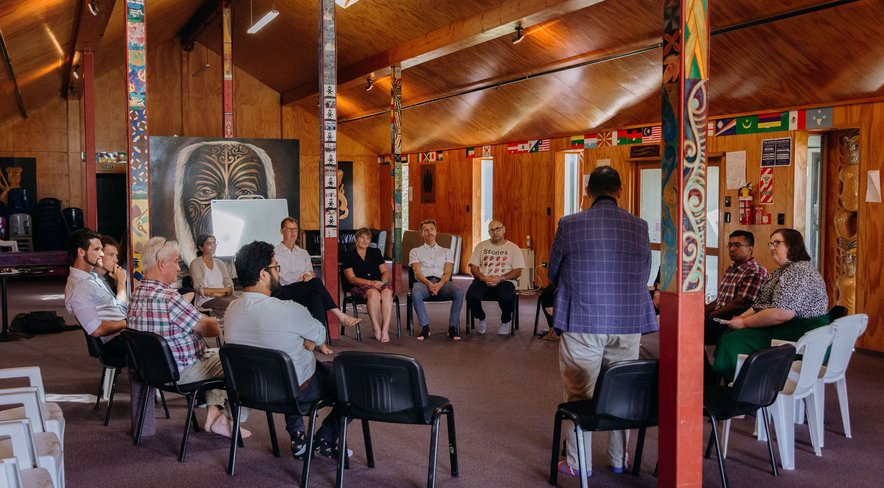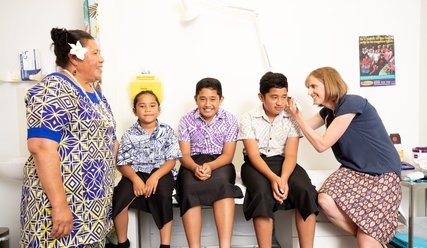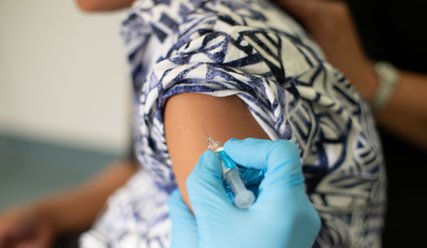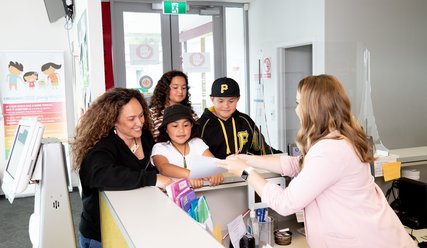Very, very good; not perfect
“What can I do outside my work as a GP to connect with my indigenous community and build empathy and trust?” asked registrar Dr David Burton (pictured right) in the wharenui at Te Aranga marae in Hastings.
He was one of nine Hawke’s Bay registrars starting their General Practice Education Programme (GPEP) training at Te Ahunga, an orientation designed to connect them with concepts of Hauora Māori, to help share an understanding of equity and what that means in medicine and start the groundwork for a successful career as a general practitioner.
“Get down to the local wānanga and enrol in a te reo language course,” was Professor Dr David Tipene-Leach’s answer.
“Because as well as learning the language, people will see you there and you’ll become known.”
“You’ll visit the marae and care for these people, and you’ll be there when they die and over time if you’re always just there in the background then you’ll become like the furniture; comfortable, familiar, a welcome place for respite.”
It’s these kinds of conversations that Gisborne GP and medical educator Dr Patrick McHugh said had captured the spirit of Te Ahunga for him and demonstrated to the registrars that, “working as GPs we have so many options for community health beyond a prescription pad.”

“Being a good general practitioner really isn’t that different to being a good person,” he said (medical degree not withstanding). “We have a passion for people, and we seek to create connections, but for us, we’re in a unique position to also improve the health of our communities.”
“As GPs we don’t need to be perfect, but we need to be very, very good,””
This kind of passing of knowledge from experienced GPs to men and women at the start of their general practice training happened frequently over the two days of Te Ahunga. While formal training occurred within the walls of the wharenui, connections between colleagues were made during breaks, and discussions and storytelling ran across mealtimes.
“The general practice training programme in New Zealand is amazing,” said German-trained Napier GP and medical educator Dr Stefan Freudenberg.
But as the group learnt over two days, there’s a lot still to be learnt about medicine’s attitudes and approaches to indigenous health. Stories shared by kaumātua Des Rātima, a visit to Principal Matt O’Dowda across the road at Kimi Ora school to see how education and Hauora Māori were working together, and the shared real-life experiences of Dr Kiriana Bird’s wider team at Te Taiwhenua o Heretaunga illustrated clearly that all is not fair in race and health.
Back to Professor Tipene-Leach who said during his presentation on equity, which including discussions of racism in the health system, “If we don’t think it’s our fault then we don’t think it’s our problem to fix.”
At the start of these registrars’ general practice careers they received, over two days, the kind of honesty and wisdom from Rangatira that it could take a lifetime to piece together otherwise. Now their job is immense; to learn, to practice, and to go forth and empower people to be more involved in the health of their whole communities.


